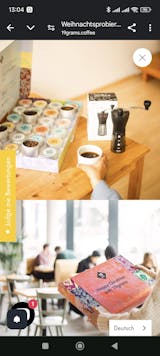Jamaican Blue Mountain coffees are among the most expensive coffees in the world.
Especially the exceptional flavor profile and quality are respected worldwide, but this is also reflected in the price. We try to bring a little light into the dark, foggy mountains of Jamaica and clarify which factors determine the price of this extraordinary coffee.
Firstly, Blue Mountain coffee is grown under strict conditions, which means that only between 400 and 1000 tons of coffee are exported. Of this, about 80% is sold to the Japanese market, leaving only 20% for the rest of the world market.
Another factor is the growing regulations for the coffee. As the name suggests, the plants grow in the Jamaican Blue Mountains. The altitude of about 1500m, the volcanic soil and the humid and cool climate offer optimal conditions for Arabica coffees.
To control and maintain these optimal conditions and the quality of the coffee, the Jamaican Coffee Industry Board (JCIB) was founded in 1950 by the Jamaican government. The purpose is to ensure the quality of exported Jamaican coffee and to ensure that Jamaican coffee meets the highest quality standards. In 2018, the JCIB was merged into a merger of other Jamaican commodity quality control authorities to form the Jamaica Agricultural Commodities Regulatory Authority (JACRA). These strict regulations are part of the reason Jamaican Blue Mountain coffee is so expensive. Every single ton of green coffee (coffee beans that have not yet been roasted) that leaves Jamaica must be strictly inspected by JACRA to ensure that it meets the highest quality standards.
The exceptional flavor profile is also a reason for the high price. The flavor profile of Jamaica Blue Mountain coffee is very complex, with subtle floral, nutty, chocolate, spicy and creamy notes, as well as a perfect balance of sweetness and bitterness.
Although at first glance all these different notes and flavors seem to conflict with each other, they are so harmonious in their relationship.
We continue to find exceptional and rare lots with flavor profiles similar to Jamaican Blue Mountain.




